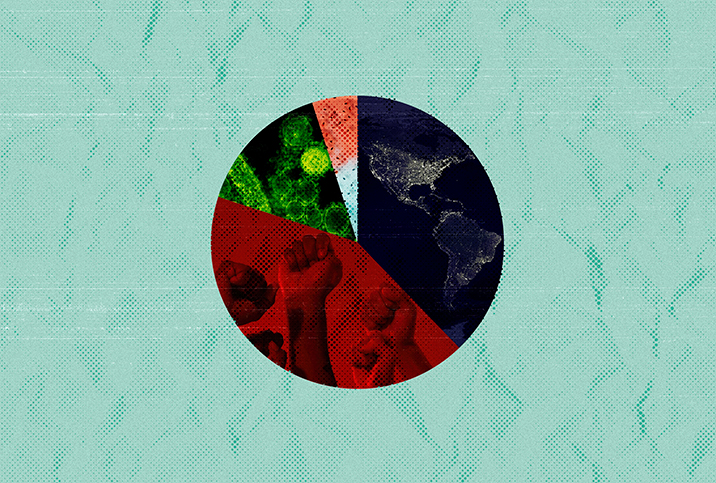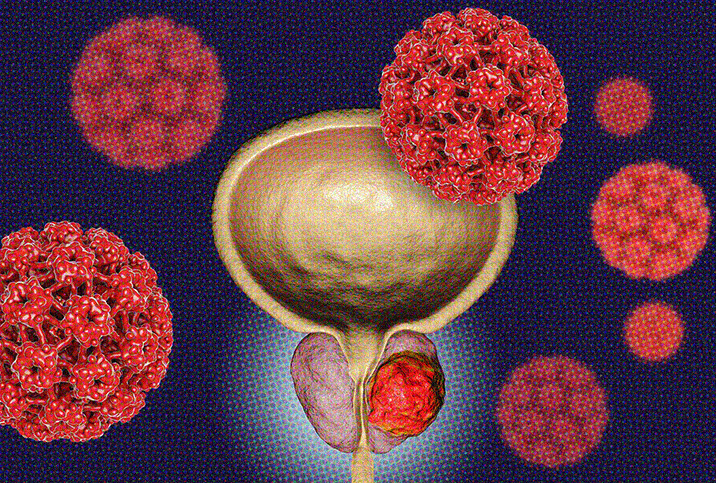Race and Geography Play Roles in Prostate Cancer Risk

Any man who is diagnosed with prostate cancer certainly isn't alone, with around 1.4 million guys diagnosed in 2020 around the globe, making it the fourth most common form of cancer.
But some surprising facts are hiding in that number. American men are especially at risk, as some 248,000 of them in the United States will be diagnosed with prostate cancer in 2021, accounting for more than 13 percent of all new U.S. cancer cases. An estimated 34,000 men will die of the disease this year alone.
Doctors have also known one puzzling component of the prostate cancer picture since at least the 1950s: the startlingly higher risk Black men face for not only developing prostate cancer but also dying from it. Black men face a 75 percent higher chance of getting prostate cancer compared to white men in the U.S.—and about double the mortality risk, according to the National Cancer Institute.
Decades of prostate cancer studies failed to examine this disparity, while white men were frequently over-represented in such studies. However, new research from the University of Southern California has taken what was long suspected about genetics influencing the rate of prostate cancer diagnoses and tied it with geography. The result is a massive study involving nearly a quarter-million men worldwide that may shed new light on how race factors into prostate cancer.
A diverse genetic analysis
Lead author Christopher Haiman, professor of preventive medicine at USC's Keck School of Medicine, piloted the study, pulling together data from 107,247 men diagnosed with prostate cancer alongside a control group of 127,006 who didn't have the disease.
The research, published in January 2021 in the journal Nature Genetics, looked at men from five countries who had diverse genetic makeups, including African, Asian, Hispanic and European ancestry. The study created a model that assessed prostate risk based on a complex interplay of genetic factors. Researchers found that, on average, men of African descent inherit double the risk of prostate cancer as those of European descent. Men of Asian ancestry had about three-quarters of the risk of those of European descent.
Apart from dissecting the racial and genetic disparity in who is more likely to get prostate cancer, the study's goal is to develop tools for scoring a man's risk of the disease based solely on genes. The study identified 86 new genetic variations that increase a man's risk of prostate cancer, pushing the known variations up to 269.
Haiman added that they could identify a risk profile that could be applied across multiple racial and ethnic populations, making it more useful for more at-risk men.
With the kind of precision Haiman and his team envision, clinicians would be able to assess and monitor men for prostate cancer long before any symptoms are likely to show up, allowing for aggressive prevention and treatment.
More aggressive cancers still unexplained
One aspect of prostate cancer distribution that the USC team couldn't explain through the data was the disease's relative aggressiveness across different groups. Men of African descent often face a more aggressive form of prostate cancer and a higher risk of mortality than other men.
While acknowledging that there's no pat genetic explanation for the divergence, Haiman speculated that disparities in access to health care, early treatment and earlier screening procedures were probably factors.
Location is also a factor
While that might not be the most satisfying answer, it does tie into previous studies that looked at the genetic makeup of men most likely to get prostate cancer and their geographic location.
A 2005 study published by the American Association for Cancer Research found that the frequency with which the disease reached late stages among Black men accounted for 28 percent of the higher death rate among that cohort. The study also suggested that 10 to 30 percent of the geographic variation in mortality was linked to the different levels of access to medical care in the United States.
Conclusions
While we still might not have all the answers to why people of certain ancestry are more likely to get prostate cancer, studies such as the one from USC are taking strides toward filling in the blanks.
Men of all ethnic backgrounds may soon be able to more precisely calibrate their potential risk for prostate cancer. Armed with this knowledge, hopefully, screening and early intervention will result in higher survival rates for everyone with the disease.


















